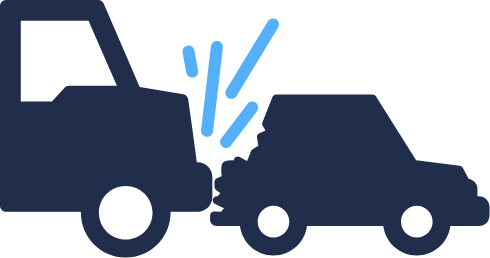Decoding the Diverse Avenues of Motor Vehicle Accident Leads

Motor vehicle accident leads are inquiries or contacts from potential clients who have been involved in traffic accidents and are seeking legal representation. For law firms specializing in personal injury or vehicular law, these leads can be important to their practice, providing a steady stream of clients. So, how does one decode this diverse avenue? Where are these kinds of leads sourced? Are certain channels more applicable? Common sources of leads such as these range, all the way from the bird’s eye view of national traffic safety statistics to the more grounded approach of networking and referrals. This article delves into the various sources of these leads and how they can be effectively utilized.
Understanding Traffic Accident Data
Traffic accident data is a compilation of statistics and details surrounding vehicular incidents. National sources like the National Highway Traffic Safety Administration (NHTSA) provide extensive data, while state departments of transportation offer localized insights. Crash statistics and other important data such as this can help inform one’s approach to lead generation, illuminating areas where there are higher incidents of traffic accidents. This data is sometimes helpful for law firms as it helps in identifying trends and potential areas with higher accident rates, thus targeting their lead generation efforts.
Police and Accident Reports as Crucial Lead Sources
Police reports are official documents that detail the occurrence of an accident. These reports contain valuable information such as the parties involved, the nature of the accident, and potential infractions. These can be important pieces of data to glean, informing law firms more about the nature of an incident.
Accessing these reports can be beneficial to law firms as they may be used to glean potential leads, though there are limitations such as privacy laws and reporting delays that must be navigated.
As such, it’s important to check with your state’s laws regarding police report requests and lead generation and marketing to ensure that this practice is compliant with any applicable state, local, or federal laws, and take careful steps to ensure that you seek these kinds of leads through proper, legally compliant and ethically sound channels.
Tapping into Health Care Facilities
The Health Insurance Portability and Accountability Act (HIPAA) sets strict guidelines on information sharing, stressing the need for ethical conduct in lead generation practices within this domain.
As such, it’s crucial that law firms strictly adhere to relevant privacy laws and regulations such as HIPAA. It will not be possible to legally obtain patient information without prior consent from the patient, which means that this method does not involve simply pulling records. Rather, it may involve developing a professional relationship with healthcare facilities that can legally inform their patients of your firm without divulging legally protected healthcare information.
Still, even this approach necessitates a high level of caution. Many states may have specific laws or regulations that explicitly ban this and related practices. Even the American Bar Association has strict rules on the solicitation of clients. As such, you’ll need to carefully ensure that your marketing practices are legally and ethically compliant.
Moreover, should doctors or other healthcare professionals refer patients to your law firm or inform them of your services, you’ll need to carefully ensure that you’re not participating in a system of illegal kickbacks, and ensure that these kinds of referrals are legal in your jurisdiction to begin with.
Exploring the Power of Digital Channels
Digital channels have transformed lead generation.
- Social media platforms enable targeted advertising and are a rich source of not only potential prospective individuals but also a potential means of social listening and better understanding common attitudes toward your services, while-
- Regular web searches can reveal individuals looking for legal advice post-accident. Additionally, organic online marketing, which often involves optimizing your online presence to be engaging and visible on search engines can be important.
- Online traffic accident databases may also serve as a rich source for leads, provided the information is used within the bounds of digital privacy laws applicable to your jurisdiction.
As such, it’ll be important to ensure that any digital means you utilize for the ends of seeking new case leads are both ethically and legally compliant within your jurisdiction. That said, social media, and online search engines are important facets of marketing for many businesses. In today’s world, more individuals seem to be online than ever before, and online and digital marketing can be powerful tools for business growth.
Direct Mail Campaigns: The Traditional Yet Effective Method
Direct mail campaigns involve sending personalized letters or brochures to potential leads. They remain an often effective means of lead generation — reaching out directly to individuals based on demographic and situational data.
Crafting a compelling message and maintaining a refined mailing list is often key to the success of these campaigns. It can be important to grab readers’ attention and make the message personal. What’s more, it’s important to ensure that mailing lists are both up-to-date, that those who’ve sought to opt out are regularly removed from the list, and that the lists are legally sourced. Ensuring that your recipients want to hear from you is an important first step.
Though this practice is well-established, it’s still important to note that you must ensure compliance with applicable laws and ethical guidelines that pertain to how leads can be sourced and how law firms are allowed to market themselves. Several states explicitly ban “ambulance chasing” practices.
Networking and Referrals: The Human Element
Networking with other professionals and garnering referrals from satisfied clients are timeless strategies. Personal recommendations and professional endorsements can significantly boost a firm’s credibility and lead generation. While oft overlooked, word-of-mouth can be one of the most powerful marketing tools in your inventory.
Conclusion
The avenues for generating motor vehicle accident leads are as diverse as they are dynamic. By leveraging a mix of traditional and digital methods, law firms can potentially tap into a wide range of potential clients. The key is to remain ethical, respectful of privacy, and compliant with all regulations while pursuing lead-generation strategies.



